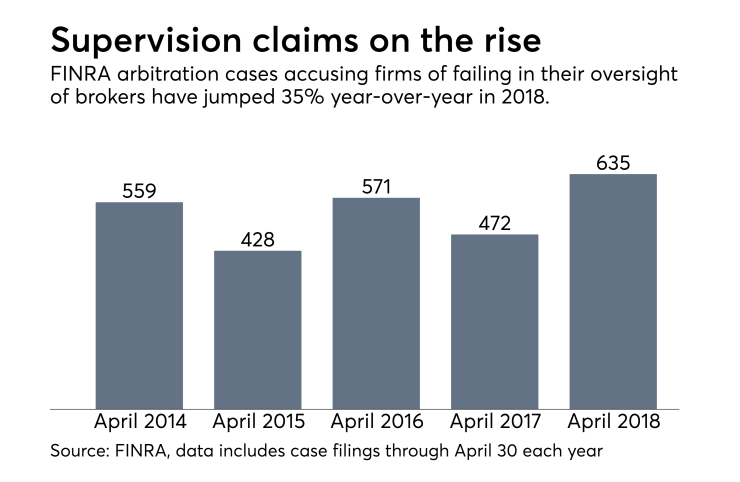An ex-Securities America advisor bilked clients out of millions of dollars with the help of phony account statements and offers of fake “tax-free corporate bonds,” a lawyer for the clients alleges.
Securities America, which is Ladenburg Thalmann’s largest subsidiary and the No. 10 independent broker-dealer, fired Hector May
A little over a week earlier, May and his wife Sonia had agreed to an asset freeze with possible forfeiture by the U.S. Attorney’s Office for the Southern District of New York. A lawyer for May's former clients, Jenice Malecki, included the so-called consent restraining order in an

May, who ran a New City, New York-based RIA called Executive Compensation Planners, does not face any charges. The restraining order, though, mentions a federal probe into a securities fraud scheme through the RIA, and Securities America accused him in a U5 filing on his dismissal of misappropriation of client assets.
His former clients didn’t name May in the arbitration, Malecki says, out of concerns he wouldn’t be able to pay any award. Instead, the clients accused the firm of failing to supervise May, and Malecki says she believes Securities America waited months to fire him after learning of the conduct in December or January.
On the premise of investing money in the non-existent “tax-free” bond products in firms like General Electric or General Motors, May shuffled the clients’ money from their regular accounts to ones controlled by him or his RIA, according to Malecki.
“They put wires into and received wires out of his bank accounts. There was a tremendous amount of large chunks of money being taken out of Securities America by Hector May clients,” says Malecki, who operates the Malecki Law firm out of New York City.
“Our allegation,” she continued, “is that they really didn’t do any honest auditing of his office because, had they done that, this scheme was open and notorious enough that they would have seen it.”
-
The Justice Department disclosed a felony probe the day before the broker’s termination.
April 6 -
The adviser allowed her disabled sister to die of untreated bedsores, according to the D.A. It’s the first known such case involving a CFP, says the CFP Board.
April 13 -
Securities America and Atria Wealth Solutions hired recruiting and operational heads from Ameriprise and Cetera.
June 20
Thirteen of the top 25 companies generated double-digit growth in 2017 as rivals close in on the perennial No. 1 firm.
A lawyer for May, Kevin T. Conway, declined to discuss the allegations, saying neither he nor his client was in a position to comment at this stage of the case.
Securities America spokesman Chris Clemens said in an email that the suburban Omaha, Nebraska-based firm “is fully cooperating with law enforcement and regulatory agencies” but does not comment on pending legal and regulatory matters.
A spokesman for the U.S. Attorney’s Office, which does not confirm or deny investigations, did not respond to a request for comment on the case.
For Malecki’s part, she declines to provide the clients’ statement of claim or state the exact amount of damages, noting that more clients may join the case and the damages already add up to more than $1 million. A separate client filing listed on May’s
Securities America fired May on March 9, one day after the Justice Department disclosed on BrokerCheck that it was “conducting an official criminal investigation of a suspected felony.”
The consent order struck between May, his wife and his lawyer and assistant U.S. Attorneys from the Southern District’s White Plains office identifies several bank accounts and two real estate holdings in Orangeburg and Vernon, New Jersey, along with all of the Mays’ jewelry, fur, antiques and silver.
The government listed properties which it “believes constitute proceeds of securities fraud, and are thus subject to criminal forfeiture,” according to the consent order.
May created fake account statements which gradually became more sophisticated over the years, Malecki says. The victim list includes one of May’s best friends, a 32-year-old man who invested a family inheritance and a 79-year-old couple in poor health who lost their life savings, according to the lawyer.
In its last Form ADV from June 2017, Executive Compensation Planners listed four employees, 61 accounts and $23.8 million in assets under management. Nearly all of the RIA’s assets came from individual or high-net-worth individuals.
The scam continued through the winter and into the early spring, Malecki alleges, even after Securities America had found out about it.
“In our opinion, they didn’t act fast enough, even when they did find it,” she says.






